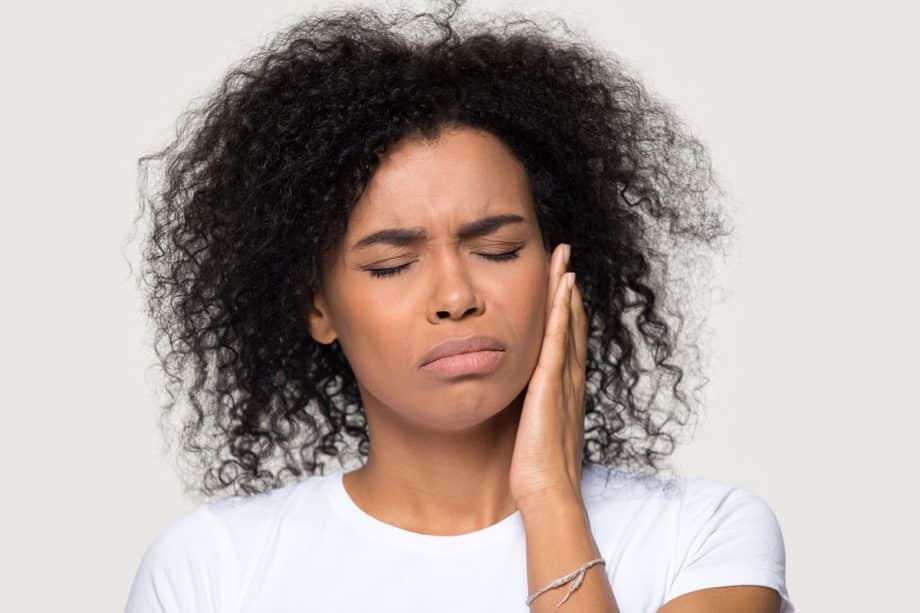TMJ, or temporomandibular joint disorder, can cause painful symptoms that interfere with a patient’s ability to chew, speak, eat, and relax. Many patients who suffer from TMJ symptoms want to know whether the condition is curable.
The short answer is yes. It is possible to eliminate TMJ symptoms using treatments ranging in complexity from diet changes to oral surgery.
In some patients, TMJ goes away on its own, but others have lingering problems that last for years without intervention. This blog will share the symptoms and causes of TMJ and the treatment methods that may give patients complete symptom relief.
What is TMJ?
TMJ stands for the temporomandibular joint. You have two temporomandibular joints at either side of your jawbone, connecting it to the skull. These complex sliding hinges allow various movements, including chewing, speaking, and yawning.
TMJ disorders happen when the temporomandibular joint becomes stressed, overused, or inflamed. They frequently cause pain in the jaws, ears, and cheeks.
Symptoms of TMJ
- Stiffness in the jaw
- Pain in the chewing muscles or jaw joints
- Jaw locking
- Pain spreading from the jaw to the neck or face
- Popping, clicking, or grating sounds from the jaw joint when accompanied by pain
- Ears ringing, dizziness, or hearing loss
- Dental bite changes
Causes of TMJ
TMJ does not always have a clear cause. Some causes may include:
- Bruxism (teeth grinding)
- Jaw injury
- Derangement of the joint (displaced disc, dislocation of the jaw)
- Arthritis
Treatments for TMJ
Multiple treatment methods can help cure TMJ. Most treatments are non-invasive and supportive. In extreme cases, surgery may correct the most severe forms of TMJ.
Diet Changes
Avoid eating hard, crunchy, chewy, and sticky food when you are having a TMJ flare-up. Also, avoid chewing gum to prevent the jaw muscles from overusing.
Cold Compresses
Ice packs may help with soreness and keep pain under control.
Avoiding Wide Jaw Movements
Try not to sing, yell, or yawn widely while your TMJ symptoms bother you.
Anti-Inflammatory Medications
Over-the-counter pain medications may help.
Stabilization Splints
Your oral surgeon can prescribe a mouth guard to relax your jaws at night. It will prevent bruxism (teeth grinding) and allow the jaw muscles to relax.
BOTOX™ Injections
In more severe cases, BOTOX can help inflamed muscles relax.
Surgery
For patients with dislocated or arthritic joints, surgery may be the best option.
Frequently Asked Questions About TMJ
Can TMJ result from a car accident?
Car accidents are a common cause of TMJ. Any sharp impact or blow to the face can disturb the jaw joints and cause TMJ.
My jaw pops and clicks but doesn’t hurt. Do I have TMJ?
If your jaw pops and clicks without pain, you may not have TMJ. However, to be on the safe side, call your dentist.
Call Upper West Side Oral & Maxillofacial Surgery
TMJ is a uniquely painful condition, but you can overcome it. Please call our Upper West Side office at 212-466-6984 to schedule an appointment with Dr. Park today.


